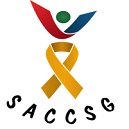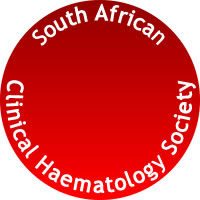Original Research
Evaluating a hypofractionated radiotherapy schedule for prostate cancer at an institution in South Africa
Submitted: 18 May 2023 | Published: 30 July 2024
About the author(s)
Firzana Hendricks, Department of Medical Imaging and Clinical Oncology, Faculty of Medicine and Health Sciences, Stellenbosch University, Cape Town Division of Radiation Oncology, Tygerberg Academic Hospital, Cape Town, South AfricaHenriette Burger, Department of Medical Imaging and Clinical Oncology, Faculty of Medicine and Health Sciences, Stellenbosch University, Cape Town Division of Radiation Oncology, Tygerberg Academic Hospital, Cape Town, South Africa
Pieter Spies, Division of Urology, Department of Surgical Sciences, Faculty of Medicine and Allied Health Sciences, Stellenbosch University, Cape Town Department of Urology, Tygerberg Academic Hospital, Cape Town, South Africa
Abstract
Background: Hypofractionated radiotherapy (HFRT) in the treatment of prostate cancer (PCa) has logistical and cost advantages, especially in a resource constrained setting. Studies have demonstrated equivalent efficacy with HFRT schedules using Intensity Modulated Radiation Therapy (IMRT) as treatment modality. However, higher rates of acute and late gastrointestinal (GI) and genitourinary (GU) toxicity have been reported when compared to conventionally fractionated radiotherapy (CFRT). In this study, we evaluate the efficacy and toxicity rates of a HFRT schedule using 3D conformal radiotherapy (RT) as treatment modality.
Aim: With this study, we aim to describe the safety and outcomes of a definitive HFRT schedule used for localised PCa. We hypothesise that there is no difference in the biochemical relapse rate and incidence rates of normal tissue toxicities between patients receiving CFRT and HFRT schedules.
Setting: This RT schedule was used at Tygerberg Academic Hospital in South Africa for the treatment of localised prostate cancer.
Methods: This is a retrospective study in which the records of patients diagnosed with localised PCa were reviewed. Patients were treated with either CFRT regimen to a total of 74Gy in 37 daily fractions for 5 days a week or a HFRT regimen to a total of 65Gy in 26 daily fractions for 4 days per week.
Results: In all, 116 patients were included in the study with a median follow-up of 57.2 months from the start of RT. No statistically significant differences in overall survival (OS) and biochemical relapse-free survival were found between the two schedules. A significant difference in acute GI toxicity was observed, with a higher incidence noted in the HFRT schedule. No significant differences were observed in late GI toxicity or in early and late GU toxicities.
Conclusion: This study observes a hypofractionated regimen using three-dimensional conformal radiation therapy (3DCRT) with similar efficacy and RT-related toxicities to CFRT.
Contribution: The HFRT schedule used in this study could be useful in hospitals with limited access to resources.
Keywords
Sustainable Development Goal
Metrics
Total abstract views: 535Total article views: 420



